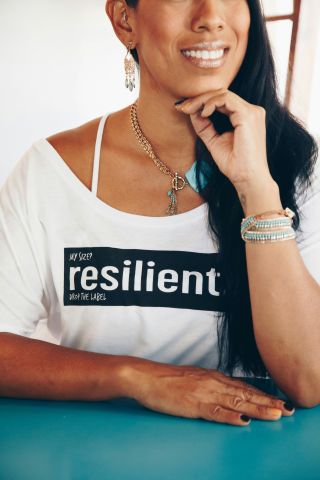Body Image
Unmasking Diet Culture
Embrace self-compassion to dismantle societal illusions.
Posted April 17, 2024 Reviewed by Gary Drevitch
Key points
- "Diet culture" reinforces societal norms and profits from insecurities.
- Empower yourself to see through diet culture's illusions by scrutinizing sources of information.
- Break free by rejecting harmful narratives and embracing compassion.

In a world where societal expectations sculpt our views on health and bodies, the relentless promotion of the "thin ideal" has turned self-acceptance into a battlefield. To bring about change, unraveling the profit-driven motives behind Diet Culture, which disguises itself as health, wellness, and even aesthetics, is crucial. Enter self-compassion – a powerful and transformative tool to dismantle the chains of diet culture while nurturing genuine self-acceptance.
Unmasking the Illusions: Profit from Insecurity
Navigating through the deceptive messages of diet culture requires a discerning eye. You must scrutinize sources, question endorsements, explore study funding, and identify beneficiaries. By critically examining the origins and motives behind the messages, you empower yourself to see through the illusions crafted by those seeking to profit from societal insecurities. This process lays the foundation for rejecting harmful narratives and embracing a path of self-compassion and genuine acceptance.
Exploring the Roots: Essential Insights into Body Insecurity
Delving into the factors contributing to body insecurity is essential to this transformative understanding. It goes beyond individual experiences, reaching into the societal roots embedded in Western culture. Factors include schoolyard jabs, parental influences, media impact, doctor recommendations, and trauma. Recognizing that external influences and personal traumas significantly contribute to our struggles fosters a compassionate approach toward ourselves. As we navigate this terrain, self-compassion becomes the guiding light, offering a shield against societal pressures that seek to dictate our worth. This exploration becomes vital to reclaiming autonomy over our bodies and fostering a healthier relationship with food and self-image.
Fostering Compassion: Challenging Societal Constructs
Self-compassion isn't just a personal attribute; it's a crucial lens for understanding the profound influence of cultural systems on mental health. It allows us to step back, acknowledging that societal norms impact our thoughts, behaviors, and relationships with food, our bodies, and others. By embracing self-compassion, we transform our mindset and contribute to a broader societal shift, challenging the constructs that perpetuate unrealistic beauty standards.
A feminist perspective becomes a guiding force in dismantling patriarchal structures that perpetuate body shaming and unrealistic beauty standards. Through the lens of self-compassion, we not only challenge these structures but actively engage in fostering a mindset that reclaims autonomy over our bodies. This intersectional approach recognizes the interconnected nature of personal and societal transformation driven by self-compassion.
Self-compassion is a powerful tool for empowerment because it allows us to reject the notion that our bodies are problematic. Education about the socially constructed nature of the "thin ideal" and dietary recommendations becomes a form of self-empowerment. As we embrace self-compassion, we gain insight into harmful societal constructs and actively participate in reshaping the narrative around body image and self-worth.
As we collectively embrace self-compassion, it becomes a force that fosters empathy and compassion not only for ourselves but also for others. This shared understanding transcends individual struggles and positions us to confront societal constructs boldly. Self-compassion empowers us to question norms, challenge the status quo, and actively participate in redefining freedom from unrealistic ideals.
Final Thoughts
Let's navigate together toward liberation through self-compassion and genuine acceptance. Embracing our complexities, understanding the roots of our insecurities, and fostering compassion for ourselves and others, we carve a path toward a future liberated from the chains of unrealistic ideals. It's a transformation worth undertaking that leads not just to personal growth but to a collective shift that challenges and reshapes societal constructs that have held us captive for far too long.


